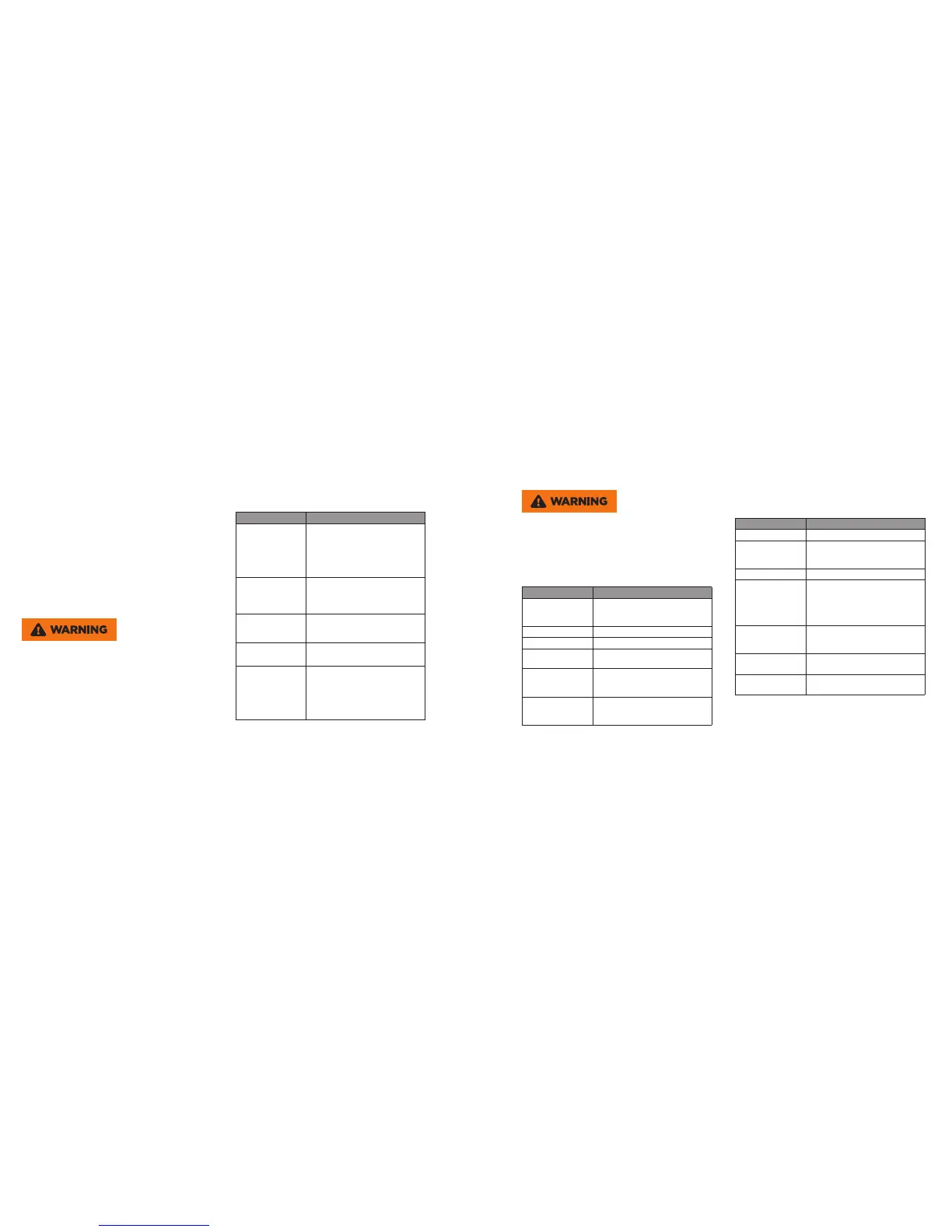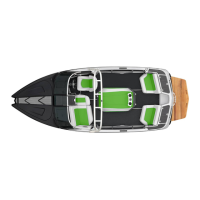2017 OWNERS MANUAL / 442
If the latch handle does not close freely, DO NOT tow the trailer
until locating and correcting the cause of the problem. Forcing the
latch handle closed will make opening the latch handle extremely
dicult.
Squeaking, Clunking And Clattering At The Actuator
Possible Cause Remedy
The hitch ball requires
lubrication
Lubricate with conventional multi- pur-
pose lubricant or commercial lubricant
made for hitch balls.
Loose hitch ball Inspect the hitch ball and tighten.
Loose hitch Inspect the hitch and repair.
A worn or too small
hitch ball
Replace the hitch ball with a quality
unit that meets SAE specifications.
Air in the brake lines,
allowing the actuator
to travel too far
Check for leaks and re-bleed the
brakes.
Trailer equipped with
“free backing” brakes
Clunking noise is typical for these
types of brakes as long as braking
performance is normal.
Extended Storage (In Excess Of One Year)
Follow the recommendations listed above for storage of several
months duration. Additionally:
• Check the brake system for fluid level in the master cylinder. If the
fluid level is low, air may be trapped in the brake lines. Bleed all
lines if necessary and fill the reservoir to the proper level.
• Lubricate all links and pivots to prevent rusting.
• Fill the frame (to avoid damage from vermin).
• Be certain the breakaway system has not been set and that the
actuator is fully extended.
• When possible, store away from excessive moisture.
Troubleshooting
If any of the following potential problems develop, the trailer must
be immediately stopped and the proper corrective action taken
before the trailer is placed back in service. Failure to do so may
lead to loss of proper trailer braking capability or damage to the
trailer and load.
When Braking, Brakes Repeatedly Come On And Re-
lease. Braking Is Not Smooth, Called “Chucking”
Possible Cause Remedy
Loose hitch or ball Correct as necessary.
Not enough tongue
weight or shocks on
tow vehicle too soft
Correct as necessary.
Air in the brake lines. Bleed the brake lines.
Contaminated brake
linings.
Fix the cause of the contamination,
which will likely be a leaky wheel cyl-
inder or hub grease seal. Replace the
linings and clean the braking surface
on the rotor.
Corroded master
cylinder bore or rust
from the brake line
Replace the actuator master cylinder.
Breakaway cable has
been pulled
Reset the push rod release bracket.
Brake line kinked Eliminate the kink. If found on a steel
brake line, the line should be replaced.
Coupler Latch Handle Not Opening Or Closing Easily
Possible Cause Remedy
Ball not fully inserted
in ball socket
Check for the proper ball size and
positive tongue load. Check to see if
the tongue jack is fully retracted. Make
sure there are no foreign objects or
excessive points inside the coupler
cavity.
Trailer and tow
vehicle not level with
each other or facing
downhill
Reposition the tow vehicle and trailer
or block a trailer tire and extend the
actuator.
Oversize hitch ball Check ball size at several positions.
The ball should be within 1.970”-2.000”
in diameter. Replace if necessary.
Excessive corrosion Lubricate or replace parts as neces-
sary.
Ball clamp
Interference
This condition can occur on certain
styles/types of ball mounts. Replace
as necessary, or lift the coupler slightly
to enable the clamp to slide past the
interference, then let the coupler back
down.

